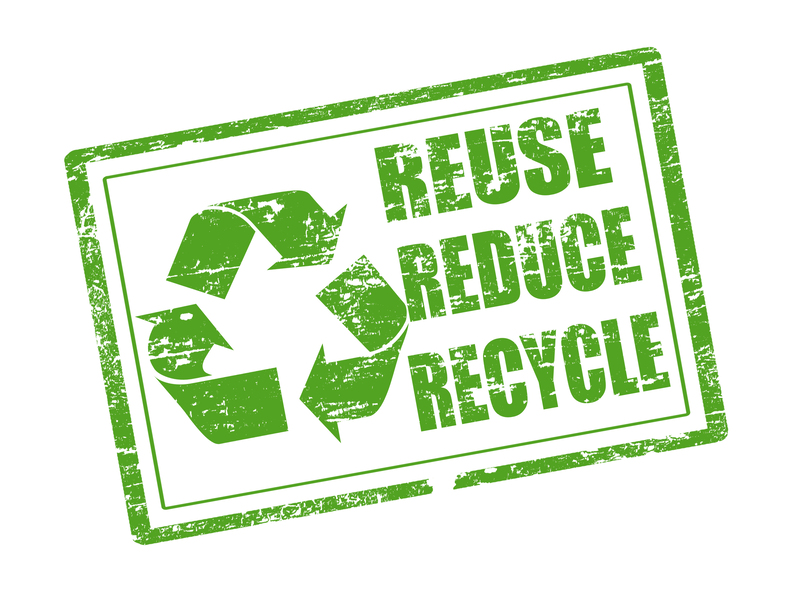From Start to Finish: Skip Hire Tips
When it comes to managing waste efficiently--whether during a home renovation, garden clearance, or office restructure--knowing how to hire a skip properly will save you time, money, and hassle. This comprehensive guide explores top skip hire tips from start to finish, ensuring your project runs smoothly and is environmentally responsible. Whether you're a seasoned DIYer or a first-timer, mastering the process of renting a skip is crucial.

Understanding Skip Hire: What Is It and Why Do You Need It?
Skip hire refers to renting a large waste container designed for loading onto a special lorry for disposal. Skips make disposing of large quantities of rubbish straightforward, especially for:
- Home renovations
- Construction projects
- Garden clearances
- Office and commercial clean-outs
- Moving house
Choosing the right skip rental makes your project more efficient and eco-friendly, keeping clutter off your site and ensuring compliance with local disposal laws.
Key Benefits of Hiring a Skip
- Convenience: Skips bring the disposal unit right to your doorstep, saving you trips to the landfill.
- Safety: Reduces clutter and minimizes the risk of accidents on your premises.
- Environmental Responsibility: Most reputable skip hire companies recycle a significant portion of collected waste.
- Legal Compliance: Reliable services handle proper sorting and disposal according to local regulations.
Planning Your Skip Hire: Essential Steps
Assess Your Waste Volume
Before you look for skip bin hire options, estimate the scope of your project. Ask yourself:
- What materials will you be disposing of?
- How much rubbish is expected?
- Will waste accumulate over several days or weeks?
For small home cleanups, a mini skip (2-3 cubic yards) may suffice, but larger projects (like renovations) often need skips between 6-12 cubic yards.
Choose the Right Skip Size
Underestimating skip size is one of the most common--and costly--mistakes. Use these general guidelines when selecting:
- Mini Skips: 2-3 cubic yards - Ideal for minor clear-outs.
- Midi Skips: 4-6 cubic yards - Great for medium renovations or garden clearances.
- Builders Skips: 6-8 cubic yards - Standard choice for construction debris.
- Large/Maxi Skips: 10-16 cubic yards - Perfect for bulky items and larger projects.
Tip: If you're unsure, always opt for a slightly bigger skip to avoid overloading or needing an additional rental.
Locate Your Skip Placement
Where you place your skip affects access, safety, and permit requirements:
- Private Land: Placing a skip on your driveway or garden means fewer regulations.
- Public Road: Placing on a street usually requires a skip permit from your local council. The provider often arranges this for a fee.
Ensure your site is accessible for delivery and pickup, and check for overhanging wires, branches, or walls. Accessibility ensures quick, hassle-free drop-off and collection.
Booking Your Skip: How to Get the Best Service
Research Skip Hire Companies
Don't settle for the first skip hire service you find. Instead:
- Request multiple quotes for your skip hire requirements.
- Read customer reviews and testimonials.
- Check for licensing and environmental credentials.
- Compare included services, such as permit handling and recycling policies.
Finding a reliable provider ensures responsible waste management and avoids hidden charges.
Understand What Can (and Cannot) Go in Your Skip
Not everything can go in a skip. Most companies restrict certain hazardous or specialist items. Make sure you know what is accepted to avoid fines or rejected loads. Typically, you cannot dispose of:
- Asbestos
- Electrical equipment (fridges, TVs)
- Fluorescent bulbs
- Batteries
- Paints, solvents, and chemicals
- Tires
- Gas cylinders
Permitted items often include general household waste, furniture, wood, metal, garden waste, and building rubble. Always confirm with your chosen provider.
Arrange Delivery and Collection
Coordinate your skip delivery around your project schedule. Ensure the site is clear and accessible on the agreed day. Likewise, arrange collection promptly after your project to avoid extra charges for extended hire times.
Loading Your Skip Safely and Efficiently
How to Load a Skip Properly
Careful loading maximizes capacity and minimises additional costs:
- Break down bulky items (furniture, boxes) to use space efficiently.
- Place heavier items at the bottom, lighter on top.
- Don't overfill: skips should be filled only to the marked fill line. Overfilled skips will not be collected due to transport laws.
- Distribute weight evenly for safe lifting and transport.
Skip Hire Do's and Don'ts
- Do sort recyclables (metal, wood, green waste) where possible to aid separation.
- Do keep restricted items out of your skip.
- Do ensure access is clear for drop-off and collection.
- Don't hide hazardous waste in your skip--it's unsafe and illegal.
- Don't block pavements or public walkways, especially if your skip is on a public street.
Legal and Safety Considerations in Skip Hire
Skip Permits Explained
If your skip sits on public land (like a footpath or road), you need a permit from the local authority. Failing to secure a skip permit can result in fines or removal of your skip.
- Permits typically last 1-2 weeks, but extensions are possible.
- Costs and regulations vary by location.
- Some providers organize permits for you--ask during your booking.
Skip Safety Tips
- Place traffic cones or reflective markers around skips on public land.
- Never allow children or pets to play near or inside skips.
- Close skip lids (where provided) to prevent windblown debris.
- Be cautious when disposing of sharp or heavy objects.
Safety is everyone's responsibility. Prioritize it at every stage of your skip hire process.
Environmental Considerations: Recycling and Sustainability
Choosing a sustainable skip hire service reduces landfill impact and conserves resources. Ask your provider:
- What percentage of collected waste is recycled? Aim for companies with rates above 80%.
- Do they use environmentally friendly transport?
- Are they licensed by the Environment Agency?
Eco Tip: Separate materials at source when possible--this helps end processors recycle more efficiently and lowers costs.
Troubleshooting Common Skip Hire Problems
Dealing With Overfilled Skips
If your skip fills up sooner than expected, you have several options:
- Request an early collection and arrange a new skip delivery.
- Remove non-essential waste to reserve space for priority items.
- Consider a wait and load skip hire for quicker, flexible removal.
Never attempt to pile waste above the rim. Overfilled skips are unsafe to transport.
Delays in Skip Collection
If your skip is not collected on time:
- Contact your skip hire company promptly.
- Double-check that access is not blocked.
- Confirm that your hire period hasn't ended--overruns can incur extra charges.
Prohibited Items Found in Skip
If prohibited items are detected, they'll need to be removed before collection, causing delays and potential charges. Always follow your provider's guidelines to avoid these issues.
Top-Searched Skip Hire FAQs: Expert Answers
How Much Does Skip Hire Cost?
Skip hire prices depend on size, location, hire duration, and waste type. Typically, a small skip starts from ?90 while large skips can exceed ?250. Urban areas may attract higher fees--always shop around for the best quote and be clear about what's included.
How Long Can I Keep the Skip?
Most skip hire services allow a standard hire period of 7-14 days, but you can often extend for a daily fee. Always clarify your needs during booking.
What Happens to My Waste?
Credible skip hire firms take waste to licensed sorting facilities. Here, recyclables like metal, wood, and soil are separated, reducing landfill impact. Up to 90% of skip waste is reused or recycled in the UK.
Can I Fill a Skip With Only Soil or Hardcore?
Yes, but always inform your provider. Some skips have maximum weight limits. A 'builders skip' is ideal for heavy materials. If you mix in general waste, you may face additional charges.
Does Skip Hire Include Permits?
Many skip hire companies offer permit application as an optional extra--often for a small administrative fee. Confirm when you book to avoid surprises.

Summary: The Start-to-Finish Skip Hire Checklist
- Estimate your waste volume and choose an appropriate skip size.
- Find a reputable, licensed skip rental company with strong environmental credentials.
- Verify what can go in your skip and arrange permits if needed.
- Plan a safe, accessible placement spot for your skip.
- Load efficiently and safely--never overfill.
- Cooperate on collection and report any issues promptly.
- Choose providers with strong recycling rates for eco-friendly disposal.
Conclusion: Make Skip Hire Simple and Efficient
Hiring a skip needn't be daunting. With the right guidance, from planning to disposal, you can enjoy a clutter-free space, stay compliant with waste laws, and contribute to a greener environment. Follow these expert skip hire tips for a streamlined, stress-free project--no matter the size or challenge.
Ready to start? Plan ahead, choose wisely, and let effective skip hire fuel your project's success!